Speakers
Description
High Intensity heavy-ion Accelerator Facility (HIAF) project is being constructed by the Institute of Modern Physics, Chinese Academy of Sciences. A High energy FRagment Separator (HFRS) at HIAF was designed to study the properties of rare isotopes far away from the line of beta stability and their involved nuclear reactions of astrophysics interests. HFRS utilizes the Bρ-TOF-ΔE method for high magnetic rigidity, large ion-optical acceptance, and excellent particle identification, commonly used in nuclear fragmentation secondary beam devices. Among them, the energy loss detector ΔE is the key to particle identification. The energy loss detector is designed using the multiple sampling ionization chamber (MUSIC). It can significantly improve the energy resolution of the gas ionization chamber through multiple samplings. Each MUSIC detector has 9 channels, including 8 anode channels and 1 cathode channel for correction. The readout electronics consist of 9 charge sensitive amplifiers (CSA) modules, a readout control module (RCM), and the sub-clock module. In addition, one high-voltage power supply provides a bias voltage for the field cages. The measured data is transmitted to the DAQ system via 10 GSPS optical fiber. The readout electronics have been manufactured and are undergoing comprehensive electrical performance testing and preparations for joint experiments with radiation sources and beams with the MUSIC detector. The test results will be reported during the conference.
| Primary experiment | HIAF-HFRS |
|---|
